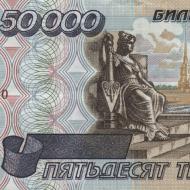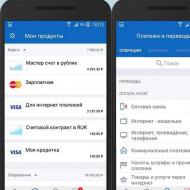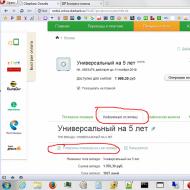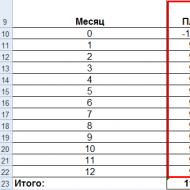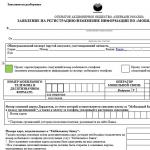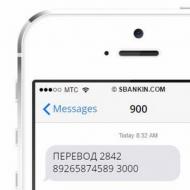
What are fuel cards and who are they for?
Individuals and legal entities strive with all their might to optimize their costs for the purchase of fuel. Previously, organizations and individuals could buy fuel coupons, which had a certain denomination and allowed them to pay for refueling by bank transfer - the operator simply made a note of how much fuel was filled. Now coupons are also widely used for one-time refueling.
Fuel cards- this is a more profitable solution, since all information is stored electronically on a chip. This information can be easily retrieved and you can find out how much fuel was filled and when. Such cards are available for both legal entities and private clients.
How does a fuel card work?
Each gas station network has its own terms of service, but in general they differ only in certain aspects, for example, the ability to refuel using a card only on the days of the week specified in the contract. The point is very simple:
- an electronic wallet and a personal account are opened in the name of the card buyer, in which he can control his expenses for refueling;
- during the next refueling, the cost of fuel is debited from your wallet;
- You can top up your account by transferring funds to the settlement account of the oil company;
- The card has a certain limit, upon exhaustion of which the card must be reissued.
It is clear that this is very beneficial primarily for large motor transport enterprises, delivery services and taxis. Drivers do not have to carry receipts to report to the accounting department for each liter of gasoline. And it’s much easier for accountants themselves to work, since all transactions with the card are recorded in their personal account.
Another important point is that the card can be tied to a specific registration number of the car and it simply won’t be possible to refuel another car. In addition, the type of gasoline is also indicated - A-95 or A-98, which can be used to fill this particular car.
Individuals can also purchase fuel cards, since there are often different situations in life when payment terminals do not work and there is no cash left in the wallet. With a fuel card, you can refuel at any time without worrying about running out of money.

What are the benefits of a fuel card?
- The first and most important advantage is, of course, the speed of service and cost control.
- Secondly, all funds from the card can be used up to zero, that is, you will fill in exactly as much gasoline as you paid for, not a gram more, not a gram less.
- Thirdly, the higher the limit on your card, the greater the discount you get.
Many gas station operators set gasoline prices at the same prices as they were at the time the card was topped up or an agreement was concluded.
The advantages include high-quality service:
- availability of a Call center;
- the ability to quickly block a card in case of loss or theft;
- PIN code - only you can use your card;
- The cards are valid at all gas stations of this network.
How to use a fuel card?
A fuel card, like any other payment card, is used only where there are payment terminals. All information is stored on a chip, meaning there is no need to connect to the Internet - which is why chip cards can be used to pay in the most remote regions.

The operator will insert the card into a payment terminal with a reader, all you have to do is enter the PIN code, indicate the amount of fuel and sign the receipt. If the gas station is self-service, then you yourself need to find the terminal, enter the PIN code, indicate the pump number and displacement.
You should never forget your PIN code; if you enter it incorrectly three times, the card will be blocked. Also, if the card has not been used for more than six months, it is automatically blocked. The card may be blacklisted if all terms of the agreement are not met.
As you can see, understanding the operation of the fuel card is absolutely not difficult, especially since it comes with instructions that you must read.
Video about how fuel cards work

